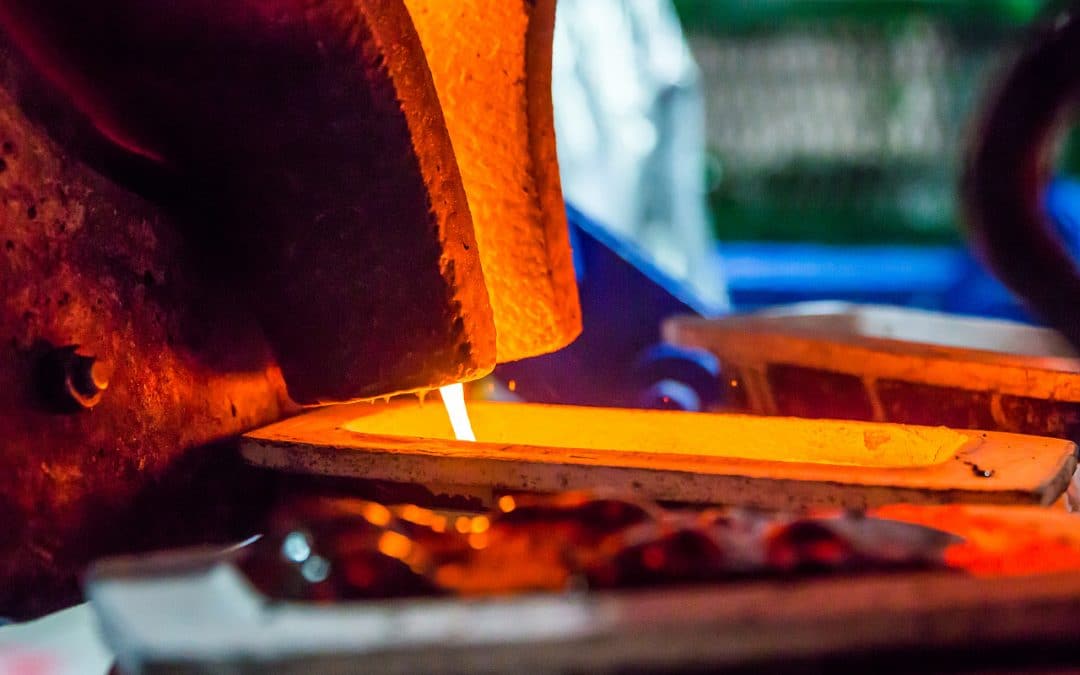Polymetal International Plc will no longer rank among the world’s top 10 gold miners by output after the sale of its Russian business, which was sanctioned by the US last year due to the invasion of Ukraine.

The gold miner agreed to sell its Russian unit — that it spent decades building — to Russian firm Mangazeya Plus, with completion of the deal marked for end-March, Polymetal said on Monday. The deal is valued at about $3.7 billion, yet after tax Polymetal is expected to receive $300 million in cash as it includes third-party debt and intra-group arrangements.

The sale highlights the consequences that international businesses with Russian exposure are facing after President Vladimir Putin ordered to send troops to Ukraine almost two years ago.
Following the invasion, Polymetal switched its domicile from Jersey, deemed an unfriendly jurisdiction by the Kremlin, to Kazakhstan to unblock international payments, including dividends, from Russia. After the US sanctioned the St. Petersburg-based unit in May 2023, Polymetal began looking for a buyer for the assets, which accounted for 70% of its revenue last year.
That wasn’t an easy task. Mangazeya Plus is a part of a Russian group that has small gold mining assets in Siberia and is controlled by entrepreneur Sergey Yanchukov. Neither he nor the company are under penalties. While the buyer showed interest during early stages, it turned into the leading bidder following sanctions on many bigger Russian gold-miners at the end of last year, Polymetal’s chief executive officer Vitaly Nesis said in a phone interview.
The transaction, which still requires shareholder approval, will mark a new stage for Polymetal, a miner that was founded in 1998. It will be left with an annual output of about 500,000 ounces per year, turning it into it mid-size producer by global standards. In 2023 the group produced 1.7 million ounces in gold equivalent, including the Russian unit.
“It is certainly not enough for a publicly-traded gold miner,” Nesis said, adding that the firm is working on its new strategy and expansion plan. “Our mid-term target is at least one million ounces per year in gold equivalent and we will have to look not at gold only, but at copper and other metals.”
The sale of the Russian unit was backed by the Omani government-owned fund that became a major Polymetal shareholder in January.
Payments under the deal will be denominated in rubles. The amounts include a dividend of nearly $1.43 billion before tax that the Russian unit will pay to the Kazakh company. Polymetal will use about $1.15 billion of that to pay intragroup debt and interest to the Russian company. The transaction value also includes $2.2 billion of net debt retained by Polymetal Russia, while the buyer will pay $50 million in cash to the Kazakh company after the deal is completed.
Polymetal will continue to use the Amursk POX processing facility in Russia to process gold concentrate until it builds its own plant in Kazakhstan. The company is in contact with the US authorities to ensure that won’t lead to secondary sanctions, according to the statement.
While many large multinationals publicly declared they’d withdraw from Russia after Putin sent troops into Ukraine, there are fewer examples of big business owners splitting their assets or selling out. Dutch-registered Yandex NV agreed to sell its Russian business for about $5.2 billion this month, and major shareholders of GlobalTrans and Qiwi said they sold their assets earlier this year.



